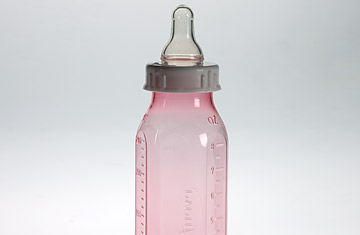
(2 of 2)
Though the FDA has ruled BPA safe, not everyone in the government agrees. Earlier this month the National Toxicology Program (NTP), a federal agency that gauges the safety of chemicals, reported that its research shows "some concern" about the effects of BPA on the brain development of fetuses and young children. (Children are considered particularly vulnerable to the chemical, which is thought to interfere with development.) Critics note that the FDA's report relied on a small number of studies funded by industry groups that manufacture BPA, while the NTP took in a wider range of science. "The FDA says that their safety standard is that there must be reasonable certainty among competent scientists that a chemical is not harmful," says vom Saal. "So unless they declare the NTP scientists incompetent, something is wrong here."
Vom Saal and other scientists will have a chance to have their voices heard on Sept. 16, when the FDA convenes an open meeting to reassess the safety of BPA. Other governments have already moved to regulate the chemical, including Canada, which has considered banning it. For concerned parents, limiting BPA exposure for children isn't that hard. Watch out for the number 7 on the bottom of plastic containers, which often means they contain BPA; avoid canned foods for children; and don't microwave plastic food containers that contain the chemical, as heat can make it easier for BPA to leach. Ultimately, though, it may not even matter what the FDA does — a new report by the Investor Environmental Health Network says that consumers, manufacturers and retailers are already forgoing the chemical, buying and selling BPA-free bottles and other products. Wal-Mart and Toys 'R Us have already announced their intention to shift away from products containing BPA. Which shouldn't be surprising — in America, commerce leaves science and the government in the dust.
